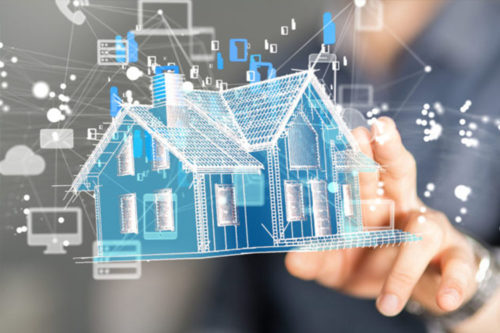What is Smart Home Technology?
The current market offers much smart stuff – smart fridges, washing machines, smart stoves, and so on. They are a greater addition to your home because of their multiple benefits, including enhancing security and comfort.

Additionally, they offer a lot of convenience and energy efficiency. Smart home technology, allows you to control smart devices using a smart home app on a smartphone or other devices.
Smart devices connect through a network or the Internet. They use sensors and other devices and appliances that connect to the Internet of things (IoT). What’s best is that you can remotely control, monitor, or access all devices.
Important points
- You can set a smart home technology using hardwire or wireless technology
- A smart home allows you to control home appliances remotely
- It’s convenient and cost-saving
- Smart home technology.
- Has some security concerns
Understanding Smart Home Technology
How does it feel if you can connect everything to the Internet? Imagine being able to communicate with:
- Home Appliances, such a washing machines, fridges, and garage door openers
- Security systems
- Home entertainment systems
- Wall clocks
- Environmental controls, e.g., air conditioning, heating, and lighting
Besides taking your command, they relay back the necessary information. Call this Internet of Things (IoT), and it is a fundamental component of home automation systems.
Smart home technology also encompasses other tools like ZigBee, Lutron, and Wink. These tools allow you to monitor all your smart devices on the go. Typically, they unite all devices, placing them under one interface.
How Smart Homes Work
All smart devices within a smart home technology connect either with hardwire or wirelessly. You can access all these devices through a central point, usually a smartphone, laptop, tablet, or game consoles.
You can control all devices and appliances through a single home automation system. The option to create a schedule makes it more efficient. Install the system and create time schedules for specific devices. As a result, specific changes occur at appointed times.
Some smart home devices have self-learning skills. Therefore, they can learn the schedules of homeowners and make adjustments accordingly. Still, some come with lighting control capabilities; Thus, reducing electricity use; thus, cost savings.
You can tailor your smart home technology alert you or call authorities (fire departments or police) in case of motion.
Wireless vs. Hardwired Smart Home Technology
You can choose between wired and wireless connections, depending on your preferences. In some cases, you can choose both. The wireless systems seem to be on a lower side when it comes to installation costs than a hardwired home automation system.
For instance, you can spend several thousand dollars on installing a wireless system featuring smart lighting, climate control, and security.
Wireless systems have the advantage of reducing the clutters of wires all over the house. But they are prone to hacking.
On the other hand, people find hardwired home automation systems to be more reliable and are more difficult to hack. Installing such a system in your home typically increases the resale value of your home.
However, they are expensive. If you need a luxury hardwired smart system, you have to part with tens of thousands of dollars.
Advantages of Smart Home Technology
The advantages of a smart home include:
- Convenience: you can connect all devices to a single system. It means you can run everything from a single source – the smartphone. While at work, you can run laundry or optimize your heating system.
- Cost-saving: with smart home systems, you can optimize energy usage. With the ability to schedule events, you can schedule your dishwasher to begin cleaning at 3 am. This is an off-peak hour, rather than 7 pm when everyone is cleaning.
- Track resource usage: most smart home systems come with a logging tech, which allows you to track the resource expenditure.
- Notifications: once you set up the system, you can link it to your tablets, smartphone, or laptop. Each time an event occurs, it notifies you. This keeps you aware of what is happening in your home.
Disadvantages of Smart Homes
- Security risks: the systems are prone to hacking. Since you connect these devices to the Internet, it easier for hackers to access your information.
- Data privacy: many people worry about the privacy of their data, considering that smart home device manufacturers may collect consumer data to improve their products or create newer ones.
- Bugs: Bugs are a common thing to users of the Internet and modern technology
- Lack of interoperability, due to lack of a gold standard for home automation.
The good news is that you can overcome these problems by using strong passwords and encryptions. Also, ensure that you connect to devices that you trust.
Smart home technology is the best way to manage your home in this century. The system can manage virtually everything in your home. Kitchen appliances, bathroom stuff, security, ventilation, and music system can fall under one home automation system, and you can easily control them. They offer efficiency, reduce energy costs, and ensure better security.